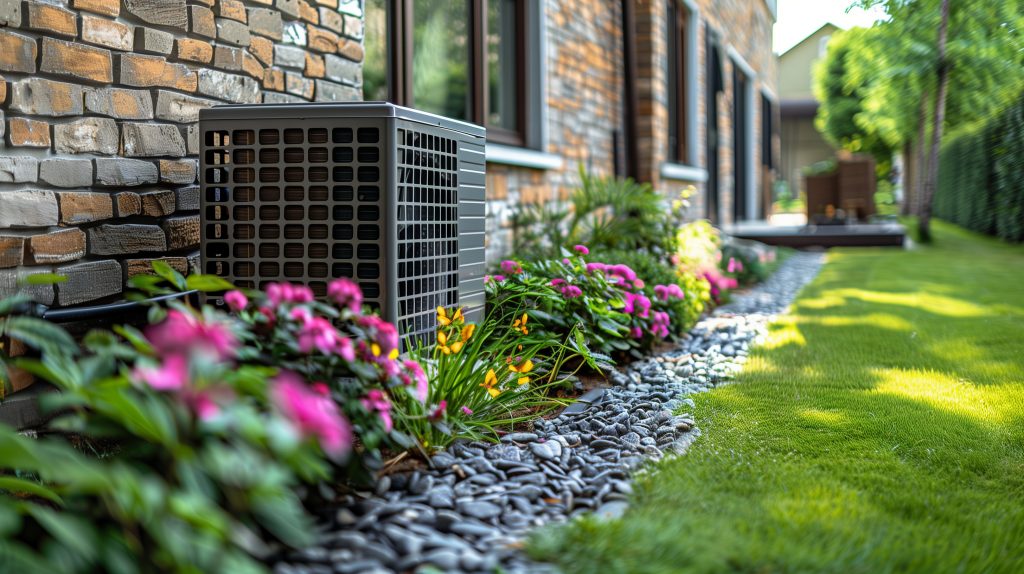Springing Comfort: The Role of HVAC Engineering in Embracing the Changing Season

As winter bids farewell and nature awakens in the warmth of spring, HVAC (Heating, Ventilation, and Air Conditioning) engineers play a crucial role in ensuring optimal indoor comfort. The transition from heating to cooling requires a strategic approach to HVAC engineering, taking into account the changing weather patterns and varying temperature demands. In this article, we explore the key considerations and strategies employed by HVAC engineers as they navigate the nuances of the spring season.
- Transitioning from Heating to Cooling: The advent of spring signifies a shift in temperature dynamics, necessitating the transition from heating to cooling systems. HVAC engineers meticulously assess the functionality of both heating and cooling components, ensuring a seamless shift to air conditioning. This includes inspecting furnaces, heat pumps, and air conditioning units to guarantee they operate efficiently in their respective modes.
- System Efficiency Optimization: Spring brings moderate temperatures, allowing HVAC systems to operate at lower capacities. Engineers focus on optimizing system efficiency by adjusting thermostat settings, conducting thorough system cleanings, and replacing air filters. This enhances overall energy efficiency, reduces operational costs, and prolongs the lifespan of HVAC equipment.
- Air Quality Considerations: Springtime often sees an increase in pollen and allergens, making indoor air quality a priority for HVAC engineers. They assess and clean ventilation systems, change air filters, and implement air purification solutions. This proactive approach helps mitigate allergen-related issues and ensures that occupants enjoy clean, fresh air indoors.
- Humidity Control: Spring brings not only warmer temperatures but also changes in humidity levels. HVAC engineers focus on humidity control to create a comfortable indoor environment. They may adjust humidity settings, inspect and maintain dehumidification systems, and recommend solutions to prevent excess moisture that can lead to mold growth.
- Preventive Maintenance: Spring is an opportune time for HVAC engineers to conduct preventive maintenance on all components of the system. This includes checking for refrigerant leaks, inspecting electrical connections, lubricating moving parts, and ensuring that all elements are in optimal working condition. Preventive maintenance reduces the risk of system breakdowns and enhances overall reliability.
- Energy-Efficient Upgrades: HVAC engineers explore energy-efficient upgrades that align with sustainability goals. This may involve recommending smart thermostats, energy-efficient HVAC units, or incorporating renewable energy sources into the system. Such upgrades not only enhance environmental responsibility but also contribute to long-term cost savings.
- Variable Air Volume (VAV) Systems: In commercial settings, HVAC engineers often work with Variable Air Volume (VAV) systems, which allow for more precise temperature control in different zones. Spring is an ideal time to recalibrate and optimize these systems to accommodate changing occupancy patterns and ensure energy-efficient operation.
- Emergency Preparedness: While spring is generally mild, it can bring unexpected temperature fluctuations and severe weather events. HVAC engineers prepare for emergencies by ensuring that systems have backup power, implementing remote monitoring capabilities, and having contingency plans in place. This proactive approach minimizes downtime and ensures a swift response to any unforeseen challenges.
As spring unfolds and temperatures rise, HVAC engineers play a vital role in orchestrating the transition to a comfortable and energy-efficient indoor environment. Through careful system optimization, air quality management, humidity control, preventive maintenance, energy-efficient upgrades, and emergency preparedness, HVAC engineers ensure that occupants experience the joys of spring without compromising on comfort. Their expertise not only contributes to immediate comfort but also sets the stage for a seamless transition into the warmer months ahead. In embracing the changing season, HVAC engineers truly embody the essence of adaptability, efficiency, and indoor well-being.